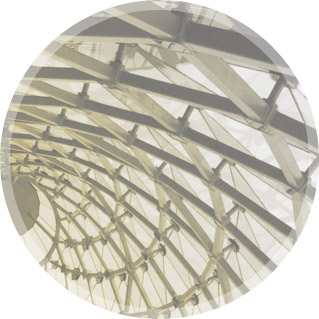Thomas Jefferson University
College of Architecture and the Built Environment
Thomas Jefferson University provides a unique opportunity to study architecture on a tranquil campus in close proximity to a great urban center. The Architecture program is the largest program on this small campus where almost 60% of the undergraduates study one of the design professions. The Program emphasizes interdisciplinary collaboration, sustainability and innovation in projects at all levels of the curriculum and the in-depth exploration of new material and tectonic possibilities in the upper levels of the program. There is an emphasis on real-world projects and connecting to real clients and communities.
http://www.Jefferson.edu/CABE
Setting
Since 1884, Thomas Jefferson University has offered professional education in a variety of fields. The university's signature blending of the liberal arts and sciences with professional studies prepares graduates for successful careers in areas that include architecture, interior design, landscape architecture, graphic design, industrial design, digital design, fashion design, textile design, business, health, and science. The university (with an undergraduate and graduate enrollment of 3,600 students) attracts students from 38 states and 42 countries, offering graduate and undergraduate degree programs in more than 40 areas of study. The University is a student-centered institution that prepares graduates for successful careers in an evolving global marketplace. By integrating the liberal arts and sciences, professional studies, interdisciplinary learning, and collaborations in and out of the classroom, students learn to thrive in diverse and challenging environments. Our students are encouraged to form supportive relationships with each other as well as faculty, staff, and alumni in an academically rigorous setting that is focused on intellectual and personal growth. Thomas Jefferson University is an experiential learning community where integrity, creativity, curiosity, ethics, responsibility, and the free exchange of ideas are valued.
School Philosophy
The College of Architecture and the Built Environment at Jefferson is dedicated to excellence in design with a focus on educating students for practice in the global market. Each of our programs emphasizes sustainable practice, collaboration and innovation. Sustainability is the key to the future of our environment. We are committed to ensuring that our graduates become-and remain-stewards of the natural and built environments. Building on the university's goal to provide a liberal professional education, the mission of the College is to prepare students to be creative, independent thinkers and innovative problem solvers. Four different undergraduate career options, architecture, construction management, interior design, and landscape architecture, are offered in an intimate collegiate setting and cooperative faculty/student learning environment. Our new Master of Architecture Program, first professional degree program, along with the Masters of Science in Architecture, Sustainable Design, Construction Management, Geodesign and Interior Architecture are available for students with non-professional or professional undergraduate degrees. Our dynamic approach to education and our emphasis on collaborative learning, sustainability, and innovation prepares graduates to become future design professionals and leaders in sustainable integrated practice.

Programs
The NAAB accredited, five year, Bachelor of Architecture (B.Arch.) degree has been a part of Thomas Jefferson University for 25 years. The primary goal of the B.Arch. program is to provide a comprehensive professional education that will develop the knowledge, skill, and vision necessary for the student to understand contemporary global issues. The program is committed to an interdisciplinary approach at all levels of the curriculum and shares integrated curricula with Construction Management, Interior Design and Landscape Architecture. The design studio is the focus of activity where coursework and creativity are synthesized. During the first semester, foundation studios are conducted in an interdisciplinary environment, introducing principles, values, and the common vocabulary necessary for effective professional teamwork. Second year studios continue teaching the building blocks of design with an emphasis on environmental and urban issues. During the third, fourth, and fifth years, the more advanced technical and professional courses are added to the curriculum, supporting studio design projects of increasing complexity and scope. In the fourth year, option for studio include topical architecture studios, design studios offered by the other programs on campus, and studios set in study abroad programs in Rome, Copenhagen and Germany. In the fifth year, understanding systems is emphasized in addressing complex urban and theoretical problems. Studio instruction supports independent research, programming, and critical analysis culminating in a capstone project. The newly launched Master of Architecture Program (first professional degree) prepares students to meet the new challenges of professional architectural practice in the 21st century, while emphasizing interdisciplinary collaboration and sustainably integrated design practices. This 3.5 year program is designed for students with undergraduate degrees in any field of study, and offers advanced standing for students with undergraduate degrees in pre-professional architecture or related design programs, such as historic preservation, urban studies, construction management or industrial design. The M.Arch. program teaches forward-looking sustainable design and technology skills and provides interdisciplinary experiences. With this combination of abilities, will graduate with a significant edge as an architect with a sought-after set of skills. The M.Arch. Program is currently a candidate for accreditation. The Master of Science in Architecture is a post-professional research-based degree designed to provide students who have already earned an accredited undergraduate degree in architecture or related area of design or construction, an opportunity to specialize in a field of study that is critical to the profession today. The M.S. in Architecture Program prepares students for specialist and consulting positions in the broad field of the built environment in the Architecture, Engineering and Construction (AEC) industry. Each student will be required to select a research focus as a Concentration composed of existing graduate courses. Its format of guided and independent research requires discipline and self-direction from the student. Unique to the Master of Science in Architecture program is the ability of the student to be able to work in an office while conducting research. There is an opportunity to get elective course credit for time spent in an office. This potential allows the student to become an 'embedded researcher' in the office, working in practice while progressing toward a Master of Science degree.

of Focus
1. Building Technologies
2. Community Design
3. Design/Build
4. Digital Fabrication & Technology
5. Digital Design & Visualization
6. Historic Preservation
7. Industry Collaborations
8. Materials and Construction
9.Sustainability & High Performance Built Environments

Opportunities

Facilities

Policies
Transfer Policies
Thinking about transferring to Jefferson? With areas of study across Architecture, Business, Design, Engineering, Fashion and Textiles, Health, Medicine, Science, and Social Science, Jefferson’s professional education programs can help you finish your undergraduate degree and prepare you for your future career.
To help with the next step, we are happy to offer the following services by email or through an in-person visit prior to applying:
– Unofficial Credit Evaluation – An unofficial credit evaluation will show a prospective student how many completed credits, and courses in progress, have the potential to transfer to Jefferson. It does not guarantee admission. To get an evaluation started, simply send Jefferson copies of your unofficial transcripts from all colleges and universities attended.
– Course Planning
– Transfer Decision Visit
– Scholarship Estimate
Please review our information on Jefferson’s Transfer of Credit policy here: (http://eastfalls.jefferson.edu/undergrad/Transfer/FAQs.html)



